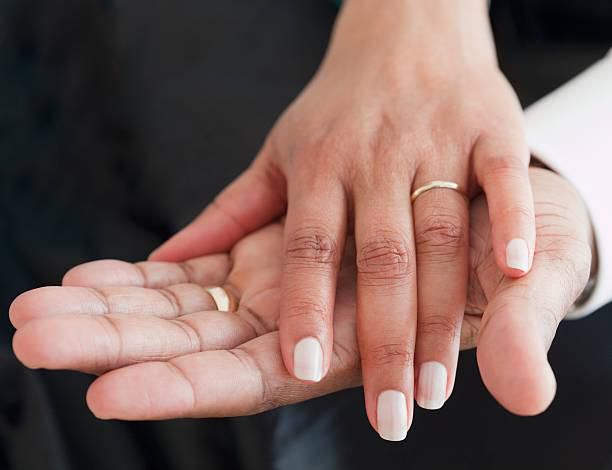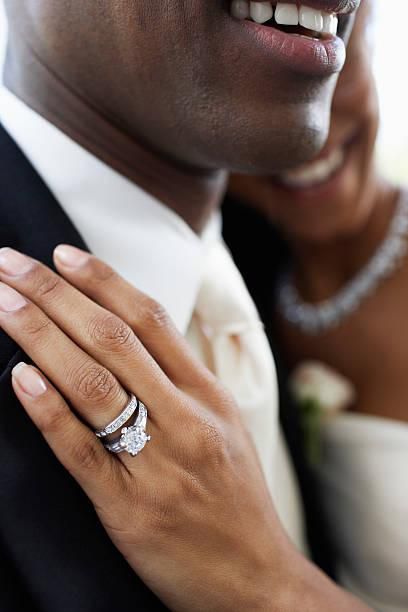5 reasons couples wear wedding rings on the 4th finger of the left hand
)
Throughout history, the practice of wearing rings, particularly wedding rings, on the fourth finger of the left hand has woven itself deeply into the cultural and philosophical tapestries of societies worldwide.
This tradition, rich in symbolism and sentiment, transcends mere fashion or decoration, embodying profound beliefs about love, commitment, and the human spirit.
Delving into the philosophy behind this enduring custom reveals insights into our collective humanity and the timeless nature of our deepest connections.
1. A vein straight to the heart
One of the most enchanting reasons rooted in ancient belief is the concept of the "Vena Amoris" or the "Vein of Love."
Ancient Romans posited that this vein ran directly from the fourth finger of the left hand to the heart, creating a direct connection between the symbol of eternal love (the ring) and the seat of our emotions.
Though modern anatomy has dispelled the literal existence of such a vein, the symbolism endures, reflecting the human desire to link love and life's essence in the most intimate way possible.
2. A circle of eternity
The ring itself, with no beginning and no end, is a powerful symbol of infinity. By placing it on the fourth finger, it's believed to signify eternal love, a commitment that knows no bounds, and a relationship that is complete and unbroken.
This circular form serves as a constant reminder of the perpetual nature of the love it represents, an ideal that many strive to embody in their relationships.

3. The left hand's role
The choice of the left hand, specifically, has roots in both practicality and belief. In many cultures, the right hand is traditionally seen as the dominant and "active" hand, used for public and ceremonial actions.
The left hand, being closer to the heart, is considered more private and reflective of one's true self and feelings.
Placing the ring on the fourth finger of the left hand, therefore, is thought to symbolize the genuine and heartfelt nature of the commitment it represents.
4. Cultural and religious significance
Various cultures and religions have woven their interpretations into the practice, enriching the tradition with diverse meanings.
For example, in some Christian wedding ceremonies, the priest touches the thumb, index, and middle finger before placing the ring on the fourth finger while reciting, "In the name of the Father, the Son, and the Holy Spirit," imbuing the act with spiritual significance.

5. Modern interpretations and choices
In today's world, the tradition continues to evolve, with couples and individuals choosing how and where to wear their rings based on personal preference, cultural background, and the unique narratives of their relationships.
The fourth finger of the left hand remains a popular choice, but the philosophy behind where a ring is worn is increasingly seen as a matter of personal significance and the meaning ascribed by those who wear it.
This content was generated by an AI model and verified by the author.
)
)
)
)
![Reasons why you should not engage in pull out method with your partner [Today's Parent]](https://image.api.sportal365.com/process/smp-images-production/pulse.ng/16082024/57a1bc0c-7975-423a-9fbf-7aa032734122?operations=autocrop(236:157))
)
)
)
)
![When an ex refuses to go out of the picture [Credit: Ad Age]](https://image.api.sportal365.com/process/smp-images-production/pulse.ng/10082024/fad800f2-541b-466a-b976-6529d2116ef0?operations=autocrop(236:157))
![Sometimes, take the lead instead of waiting for your man to initiate sex. [Credit: ThinkstockPhotos]](https://image.api.sportal365.com/process/smp-images-production/pulse.ng/31072024/5f1fe559-88de-48f3-934f-98736c40dbc1?operations=autocrop(236:157))
)
)
)
)
)
)